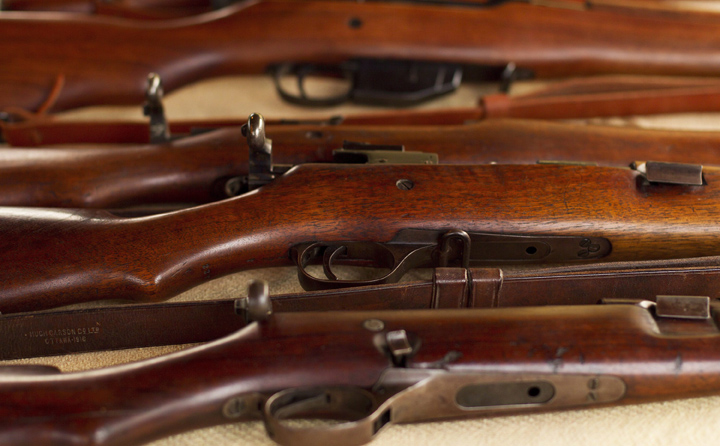The long gun registry was controversial from the moment it was first proposed in the early 1990s. Despite everything that’s happened since – its use as an election issue by the Reform, Alliance and finally the Conservative parties, its role as a wedge issue in rural and northern ridings, its final destruction (outside Quebec) when the Conservatives got a majority government, Quebec’s long and ultimately futile effort to use the courts to save its data, improbably, it still has the power to entangle governments.

The registry helped to bring the Conservatives to power, but its ghost, impartially, seems willing to haunt governments of any party.
Thursday morning, federal Information Commissioner Suzanne Legeault issued a scathing denunciation of the RCMP’s handling of an access-to-information request for parts of the long gun data, which she said should lead to charges against the Mounties who destroyed data to which, she wrote, the requester was entitled.
(Since it became law in 1985, nobody has ever been charged under the Access to Information Act.)
On Wednesday, La Presse identified the requester as Bill Clennett, a Gatineau, Que. man who is best known for having been grabbed by the neck in 1996 by then-prime minister Jean Chretien at an event in Hull, Que.
“I concluded that the RCMP destroyed records responsive to the request with the knowledge that these records were subject to the right of access,” Legault wrote in letters to the speakers of the House of Commons and the Senate made public today.
READ MORE: Information commissioner wants Mounties charged for destroying gun registry data
The report shed light on some otherwise bewildering clauses buried in an omnibus bill tabled in Parliament last week, which retroactively exempted the registry data from the Access to Information Act, as well as any information about how the data was destroyed.
- Life in the forest: How Stanley Park’s longest resident survived a changing landscape
- ‘They knew’: Victims of sexual abuse by Ontario youth leader sue Anglican Church
- Carbon rebate labelling in bank deposits fuelling confusion, minister says
- Buzz kill? Gen Z less interested in coffee than older Canadians, survey shows
“The proposed changes in Bill C-59 will deny the right of access of the complainant, it will deny the complainant’s recourse in court and it will render null and void any potential liability against the Crown,” Legault wrote. “Bill C-59 sets a perilous precedent against Canadians’ quasi-constitutional right to know.”
WATCH: Conservative MP wants to see all long gun registry data destroyed
READ MORE: Bill casts veil of secrecy over long gun registry’s destruction
–
In January of 2013, when it was clear that the long gun registry was doomed, Global News filed an access-to-information request for a redacted form of the registry database itself. If we ever wanted to work with the data, it was clear that it was our last chance. Our approach owed a lot to one taken a few years earlier by Glen McGregor at the Ottawa Citizen, who asked the RCMP for extensive data about the guns in the registry, but minimal data about their owners – just the first two characters of their postal codes. Two character postal codes are very large areas (all of Burlington, Ont., for example), and there is no chance of identifying an individual gun owner from the data.
In June, after we’d lost hope of ever getting the data (the RCMP hadn’t been returning calls for months) it suddenly arrived.
As far as we can make out, this version has less data than Clennett was looking for in his request – he also wanted the serial numbers of the firearms, for example.
The long gun registry, in its complete form, is gone, but the redacted version is the most complete data set about Canadians and their firearms which is ever likely to become public. It’s out of date, but there’s no better alternative.
Lots of insights are buried in the data:
- What kinds of guns are most attractive to thieves, relative to the number owned
- Roughly how many of a given type of controversial firearms are owned across the country, and more or less where
- As Quebec seeks to establish a provincial long gun registry, how successful it will be. Measuring the provincial registry against the legacy data from the federal registry from Quebec is the most obvious test
You can download the data here. (Update, May 15: The file hit Dropbox’s download restrictions, so I’ve moved it to Google Drive.)
Here’s an alternate link.
It’s a very large .txt file of about eight million lines, about 141 MB zipped, and 876 MB unzipped.




Comments